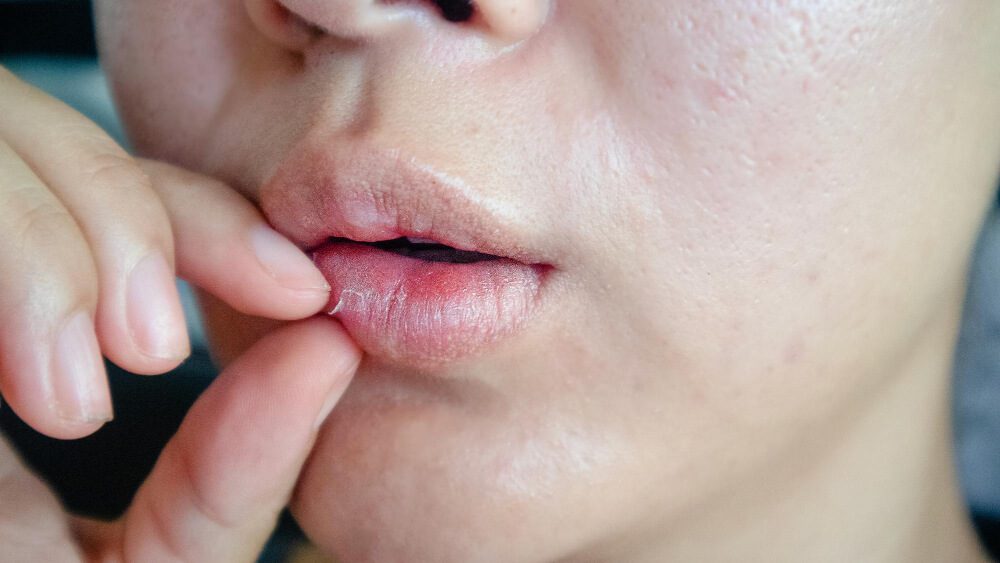Dry Mouth Treatment and Prevention Tips for Better Oral Health

If you’ve ever woken up with a sticky, parched feeling in your mouth, you’ve likely experienced dry mouth. Meanwhile, it might appear as a minor inconvenience, yet chronic dryness can make a significant difference in your dental health, both the cause of bad breath and the development of tooth decay and soreness when chewing or talking.
The good news? With the right dry mouth treatment and a few simple prevention strategies, you can keep your mouth hydrated and healthy.
If you live in Albury and have been struggling with ongoing dryness, understanding what’s behind it and how to manage it is the first step to finding relief.
What Causes Dry Mouth?
Xerostomia is also known as dry mouth, a symptom that develops when your salivary glands have become incapable of producing sufficient saliva to keep your mouth hydrated. Saliva is important to wash away food particles, neutralise acids, and safeguard your teeth and gums.
Without it, your mouth becomes more vulnerable to bacteria and decay. A number of things can lead to dry mouth, including:
- Medicines – Certain prescriptions, such as antihistamines, antidepressants, and blood pressure medicines, can reduce saliva flow.
- Medical Conditions – Diabetes, autoimmune disorders like Sjögren’s syndrome, and hormonal changes can affect saliva production.
- Lifestyle Habits – Smoking, alcohol consumption, and caffeine can all dry out your mouth.
- Mouth Breathing –Breathing through your mouth or sleeping with your mouth open may aggravate dryness.
Knowing the cause helps guide the most effective dry mouth treatment, especially when tailored to your specific needs.
Why Treating Dry Mouth Matters
Ignoring dry mouth may seem harmless, but over time, it can take a toll on your oral health. Saliva is your mouth’s natural defence mechanism. Without enough of it, bacteria thrive, leading to issues like:
- Tooth decay and cavities
- Gum disease
- Bad breath (halitosis)
- Difficulty speaking or swallowing
- A burning or painful feeling in the mouth.
Early dry mouth treatment can help prevent these complications and restore comfort to your daily life.
Effective Dry Mouth Treatment Options
If you’re dealing with persistent dryness, there are several ways to manage and relieve your symptoms. Here are some of the most effective dry mouth treatment strategies:
1. Stay Hydrated

It sounds simple, but drinking water throughout the day is one of the easiest ways to combat dryness. Keep a water bottle nearby and sip often — especially before and after meals, or when talking for long periods.
2. Use Saliva Substitutes or Mouth Rinses
To keep your mouth moist, over-the-counter saliva substitutes, gels, or mouth rinses that are meant to help your mouth stay moist can be used. Look for alcohol-free options with ingredients like xylitol, which helps maintain moisture and reduce bacteria.
3. Stimulate Saliva Production
Sugar-free gum chewing or lozenges that are sugar-free to suck are stimulated. Opt for products containing xylitol instead of sugar to protect your teeth from decay.
4. Moisturise the Air
Using a humidifier, especially while sleeping, adds moisture to the air and prevents your mouth from drying out overnight. This can be of great aid, especially when you are in a dry climate or when you frequently use heating or air conditioning.
5. Avoid Alcohol, Tobacco, and Caffeine
Alcohol, cigarettes, and caffeinated drinks all contribute to dehydration. Cutting back — or avoiding them altogether — can make a noticeable difference in saliva production.
6. Adjust Your Medicines (If Possible)
If you suspect your medicine is causing dry mouth, don’t stop taking it without speaking to your doctor. Nevertheless, your GP or dentist can recommend other options or change your dose to allow them to mitigate the side effects.
7. Professional Dental Care
If home remedies don’t provide enough relief, it’s best to see your dentist. Professional dry mouth treatment may involve prescription mouth rinses, fluoride applications, or products specifically formulated to stimulate saliva flow.
Your dentist will also verify whether you have any associated oral health problems and develop a strategy that will be used to safeguard your teeth and gums.
Preventing Dry Mouth Before It Starts
While treatment helps manage symptoms, prevention is equally important. Here’s how you can reduce your risk of developing dry mouth in the first place:
- To maintain your mouth and avoid the accumulation of plaque, brush two times a day and floss once.
- Use a fluoride toothpaste and a mouthwash formulated for dry mouth.
- Breathe through your nose instead of your mouth whenever possible.
- Limit spicy, salty, or acidic foods, which can irritate a dry mouth.
- Eat moisture-rich foods, such as fruits and vegetables, to help keep your mouth hydrated naturally.
These small lifestyle adjustments can go a long way toward preventing the discomfort and complications of dry mouth.
When to See a Dentist
If your mouth feels persistently dry — even after increasing your water intake or making small changes — it’s important to seek professional advice. A persistent lack of water may be an indication of a pre-existing condition that needs to be treated by a doctor.
A dentist will identify the cause and offer a personalised treatment for dry mouth. Your Albury dentist can also help protect your teeth from decay and suggest ongoing care strategies to keep your smile healthy and comfortable.
Dry Mouth Treatment in Albury
Living with dry mouth doesn’t have to be a daily struggle. With the right approach — from hydration and healthy habits to professional care — you can restore balance to your mouth and improve your overall comfort.
If you’re looking for dry mouth treatment in Albury, your local dental team is here to help you find lasting relief. Book an appointment today and take the first step toward a healthier, more comfortable smile.
Consult with your Albury dentist, or call us at (02) 6021 4171 or visit us at 525 Wilson St in Albury.
